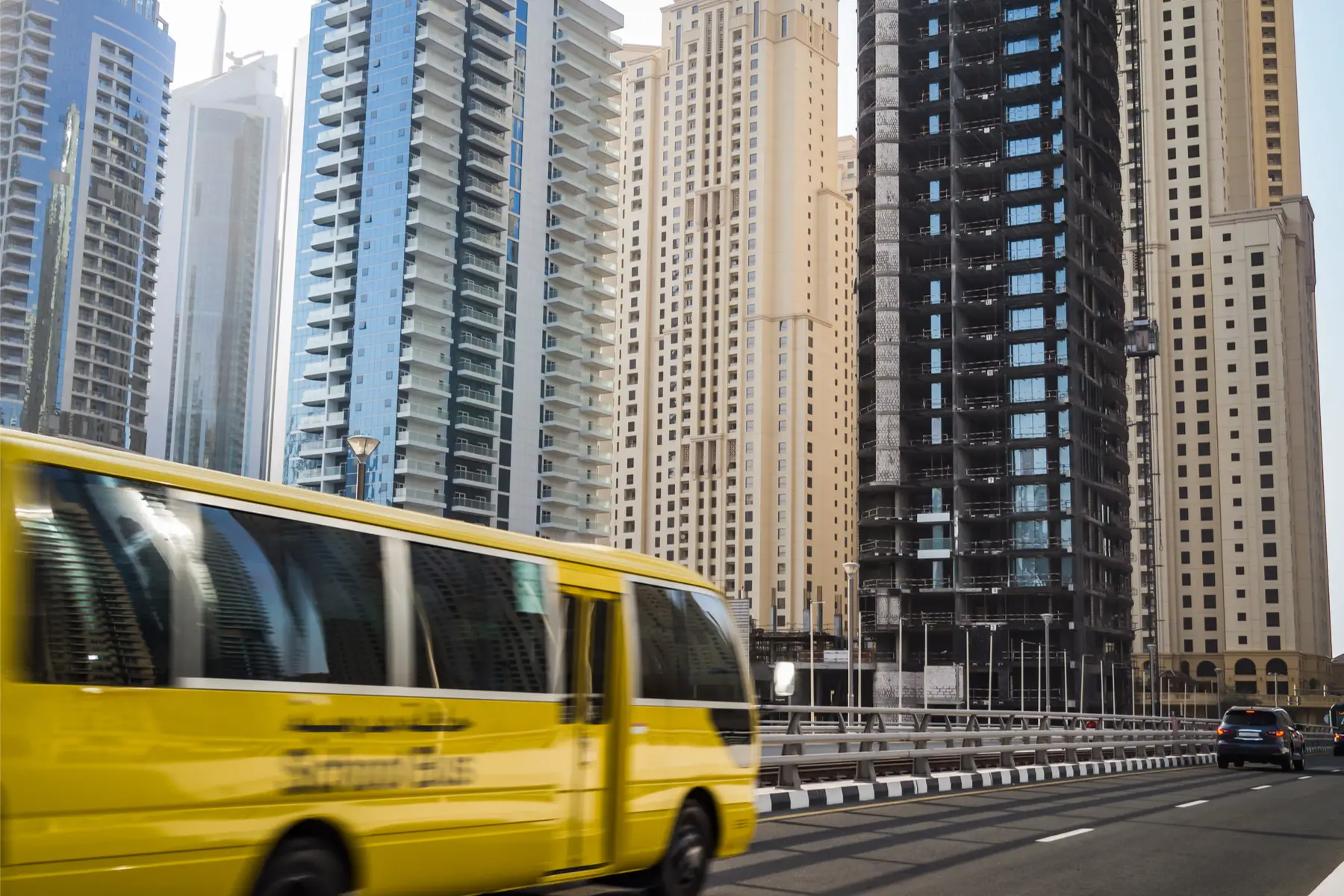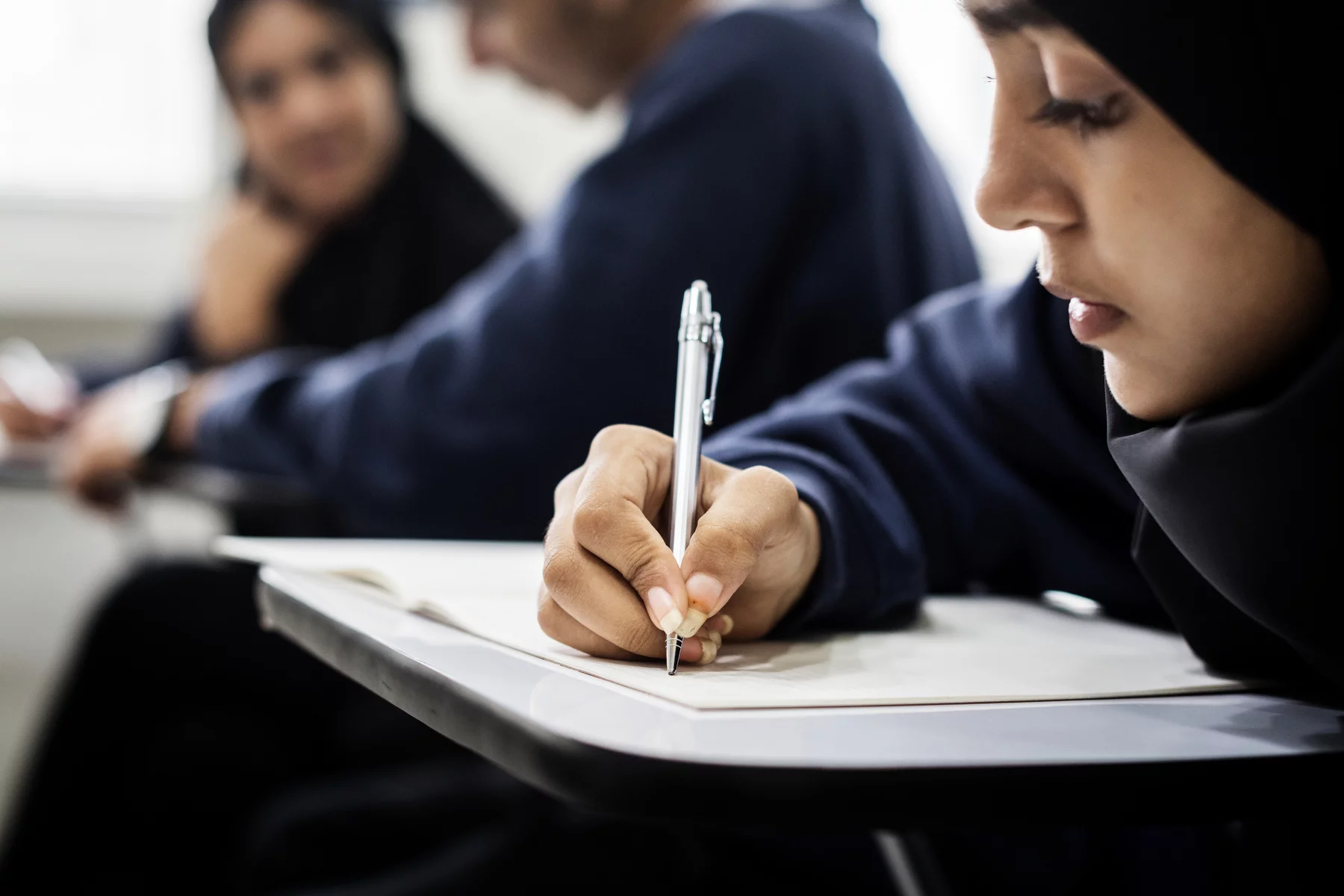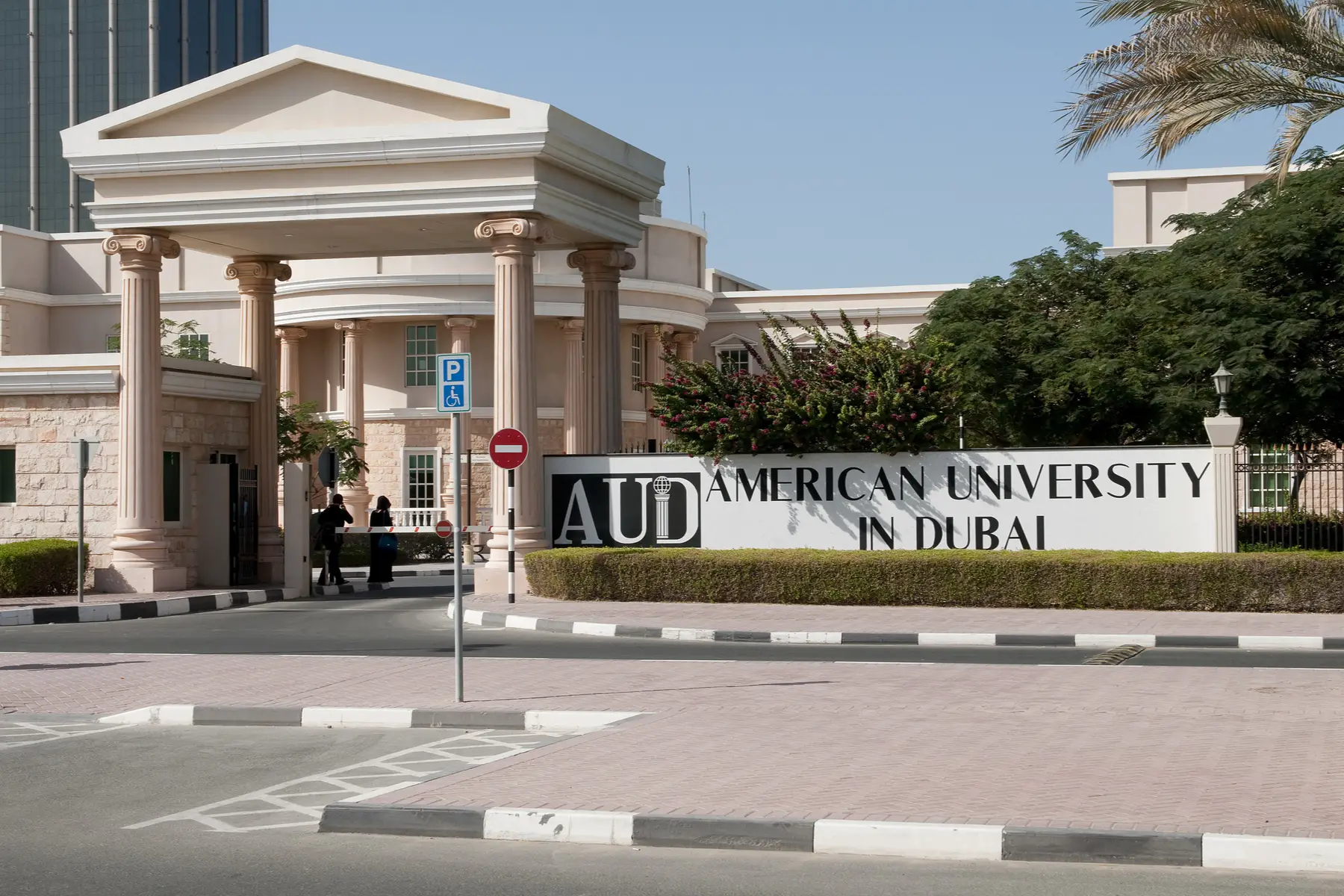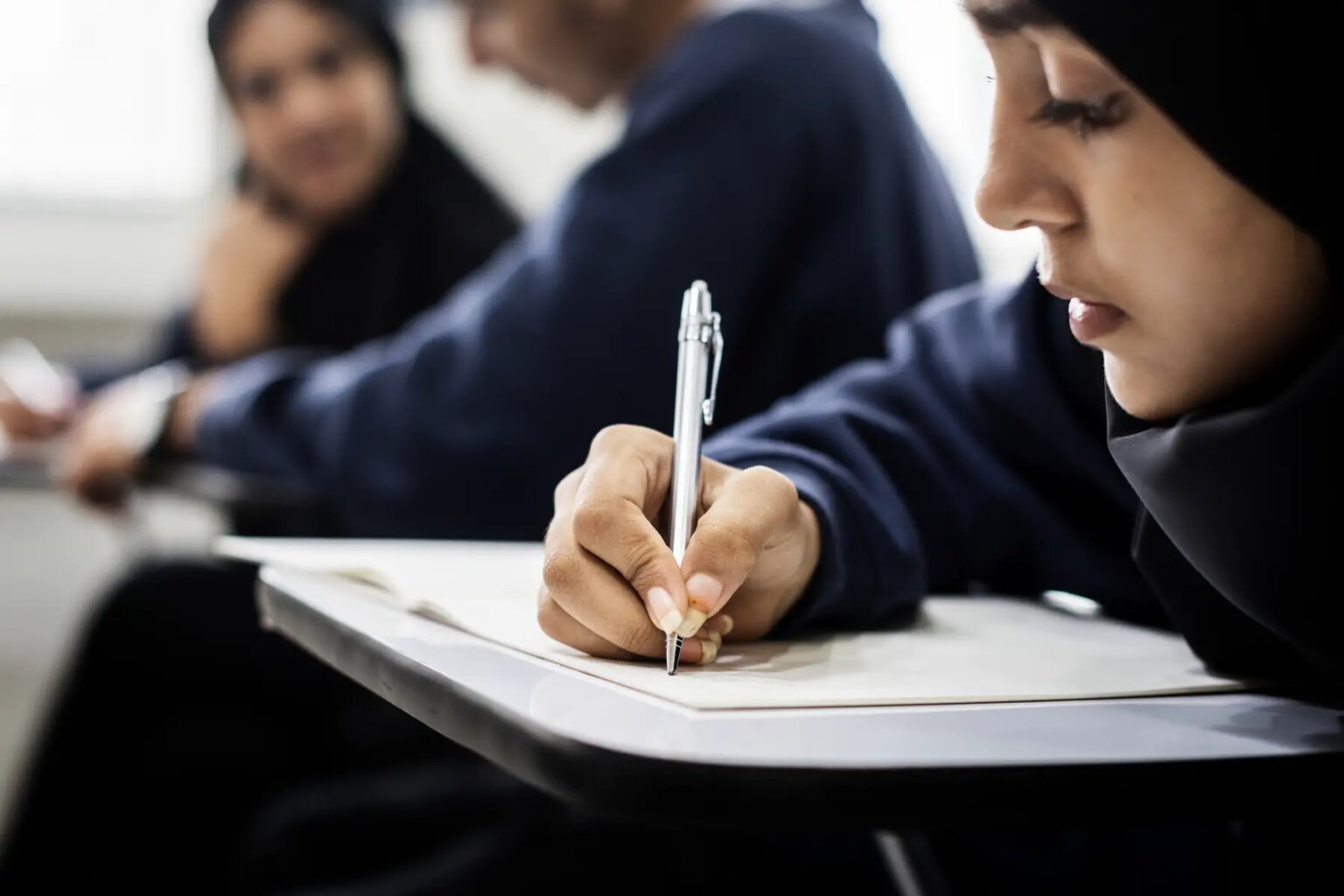For parents all over the world, their children’s education is an important concern. And for expat parents in the UAE, finding the right school that aligns with values on curriculum, classroom culture, and budget can be a challenge. This guide sheds some light on the education system in the United Arab Emirates and includes the following sections:
- Education in the UAE
- Preschool education in the UAE
- Primary education in UAE
- Secondary education in the UAE
- Schools in the UAE
- Education costs and funding in the UAE
- Higher education in the UAE
- Examinations in the UAE
- Educational support for expat students in the UAE
- Support for children with special educational needs (SEN) in the UAE
- Homeschooling in the UAE
- Useful resources
APRIL International
Looking for expat-friendly health insurance in the UAE? APRIL International has a long history of providing health coverage tailored to the unique needs of the expat lifestyle, ensuring peace of mind for you and your family. Whether you’re relocating to the UAE or simply staying short-term, APRIL International has the right policy for you.
Education in the UAE
As a popular hub for expats from all over the world working in every field imaginable, the UAE offers a range of educational options for children of expats. That said, it can be challenging for parents to find schools that are affordable, international, and that are accepting new students. Expats, then, often devote significant time to researching, contacting, and applying to potential schools.

As a relatively young country, the UAE has made tremendous strides in the field of education. In the middle of the last century, there were very few formal schools, and only in urban areas. By the mid-1970s, the adult literacy rate was 54% and 31% among women and men respectively. Surprisingly, today, rates among both genders are nearly 95%, and there are thousands of schools.
The education system in the UAE
The UAE’s educational system is split into three general categories:
- public schools
- private schools
- higher education institutions
Quality can vary significantly; however, there are some very strong schooling options available, at every level, in the Emirates. Within Gulf countries, UAE schoolchildren ranked highest, and 45th worldwide, in a global school rankings list compiled in 2015.

State schools generally have four levels:
- Early Childhood Education (ages 3–5)
- Basic level (ages 6–10)
- Intermediate level (ages 11-13)
- Secondary level (ages 14–18)
Education in the UAE all the way through secondary school is universal, free (in public schools), and compulsory for Emirati children. Equally important to know, state schools are gender-segregated. Although recent changes have allowed expat children to pay to enroll in state schools, the language of instruction is Arabic, and many expats choose to enroll their kids in private schools.
Who oversees education in the UAE?
Education throughout the UAE is regulated by a number of different bodies. On a federal level, the Ministry of Education (MOE) sets admissions standards, graduation requirements, and curricula; within each Emirate, and especially in the bigger emirates, there are individual regulatory bodies, such as the Abu Dhabi Department of Education and Knowledge (ADEK) or Dubai’s Knowledge and Human Development Authority (KHDA).
Because of this, significant educational differences can exist between different emirates. Private schools in Abu Dhabi and Dubai are supervised by ADEK and KHDA, but not the Ministry of Education. In fact, private schools throughout the country follow the guidelines set by the MOE but are not under direct government supervision.
Preschool education in the UAE
Though education in the UAE is compulsory beginning at age six, many Emirati and expat parents choose to enroll their children in preschool education between the ages of three and five. Preschool, both state and private, is usually co-educational. Parents have plenty of options, and many schools offer a K-12 education so children may never need to change schools.
Primary education in UAE
The primary school system in the UAE
Starting at the age of six, all Emirati children must be enrolled in school. Primary education is grades 1–5 (ages 6–11). Students should be proficient in subjects including math, science, English and/or Arabic, and social studies.

The school week runs from Sunday – Thursday in the Emirates, which can be a tricky adjustment for expats. Public schools run on a trimester system, while private ones tend to use the more common two-semester model. Both systems offer:
- a winter holiday in December
- a spring break in late March
- a summer break in the hot months
The primary school curriculum in the UAE
Private schools in the UAE follow a range of systems, with some using curricula based out of the UK, the US, or India, and with others offering the International Baccalaureate (IB) program. Thus, teaching methods vary between a focus on rote memorization and weekly testing to measure grades and progress, and more occasional testing and less rigid teaching styles.
Within the state system, students who successfully complete secondary school final examinations receive a graduation certificate from the Ministry of Education. Graduation requirements in private schools differ. Teaching philosophy, available subjects, and testing schedules are important elements for parents to discuss with school officials during their school search.
Secondary education in the UAE
Secondary school for Emiratis is mandatory through graduation and the country boasts a nearly 97% graduation rate. State schools begin secondary education in grade 9, but private schools practice various models.
Secondary schools in the state system teach most of the same subjects as in primary school but may add or drop certain courses, like music. Students in public schools can choose to enroll in a technical secondary school or continue along an academic track. Some of the vocational specializations offered at these technical schools include computer technology, tourism, health sciences, and finance. Individual private schools are organized differently and have no country-wide policies.
Teaching methods and assessments vary but are likely similar to primary school teaching methods within the same school. Many schools, though, do offer secondary school students some flexibility in choosing subjects they’re passionate about.
Schools in the UAE
Public education in the UAE
Public schools in the UAE are free for Emiratis and open to expats for a fee. The language of instruction is Arabic, though English is also taught. To enroll a child, parents need to contact the Education Council in their region. They’ll then be asked to submit an application form along with supporting documents such as:
- passports
- residence permits
- rent contracts
- transcripts
International schools in the UAE
Private international schools are plentiful throughout the UAE, but especially so in Abu Dhabi and Dubai. They follow various international school systems including the US and UK models, but also French, German, Indian, Irish, and Canadian systems. School admission requirements vary among schools and slots in more popular schools can be hard to come by.
Special needs education in the UAE
Schools for students with special educational needs can be found throughout the UAE, as the government remains committed to an inclusive education platform. Some schools incorporate special needs learning alongside mainstream classrooms, while some schools work only with special needs students.
Education costs and funding in the UAE
Tuition fees are a significant cost in the UAE. Those looking to enroll their children in public schools as fee-paying students can expect to pay around 6,000 AED yearly. For expats looking for private schools, fees depend on grade level and can range from 2,700 AED in kindergarten to around 70,000 AED in high school.
While the government does offer some financial aid, and schools themselves may offer discounts or scholarships, high educational costs are a reality for most expat parents. The best-case scenario is to negotiate for fees to be paid directly by your employer, as is the case with over 16% of expats in the country.
Higher education in the UAE
The UAE has a very high rate of tertiary school enrollment, with 95% of girls and 80% of boys applying to institutions of higher education. Emirati students can attend public universities free of charge.

Three Emirati universities are among the top 500 universities globally. Private universities, including arms of prestigious institutions, also abound in the UAE. These include New York University Abu Dhabi, American University in Dubai, and Canadian University in Dubai. They offer studies at an undergraduate level; some institutions also offer graduate studies. Expats from all over the world attend these universities alongside Emirati students.
Examinations in the UAE
Students in both public and private schools are tested throughout and at the end of each school year to ensure progression to the next grade level. In public schools, there are no over-arching exams that students must pass to meet national standards until their final year of secondary school.
Graduating exams in the UAE
In order to receive the General Secondary Education Certificate, public school students must pass this exam. Students in private schools must also adhere to continual, term-end, and year-end assessments. However, depending on the school system in place, like IB or the British GCSE, they may also have to pass international exams in order to graduate.
Starting in 2017, students at public schools and private schools that adhere to the national curriculum must take the Emirates Standardized Test (EmSAT), which is required for admission into most public universities and colleges.
Educational support for expat students in the UAE
Obviously, expat students enrolled in public schools may struggle with Arabic as the main language of instruction. Because most students are Emiratis, parents of expat students may have to be more involved in order to have their needs met. However, because the UAE is a majority-expat country, private international schools cater to expat student needs very well.
Students usually find that, because nearly all students are expats, schools anticipate and meet their needs much more easily. This often means that their school experience is almost exactly what it might be in their home country, including elements like AP classes and SAT and GCSE preparation. Nevertheless, Arabic classes are almost always available, and sometimes mandatory.
Support for children with special educational needs (SEN) in the UAE
Parents of students with special educational needs have a number of options throughout the Emirates. Some schools offer additional supports or separate classroom instruction alongside mainstream classrooms. Others instead specialize in only students with special needs. Parents must also consider that schools that specialize in special needs might be state or private, might have fees, and might offer instruction in Arabic, English, or Arabic and/or English.
For a list of centers and schools that focus on special educational needs, check out this resource.
Homeschooling in the UAE
The Emirati government recognizes Emirati parents’ right to homeschool their children. Parents must register with the educational department in their Emirate. Families receive books and study materials, and students must pass the relevant exams at the end of each semester/year.

The government has no legal requirements for expat parents. Some parents decide to homeschool their children because of hefty tuition fees or bullying problems. On the other hand, some prefer its more individualized nature and the possibility for blending together academic study with family leisure activities. Furthermore, some parents find it very convenient, given the various homeschooling platforms readily available. Indeed, in recent years, a number of homeschooling associations have sprung up for fellow parents to support each other, like the Abu Dhabi Homeschoolers Association. Although it isn’t known how many students in the UAE are homeschooled, online education portals have seen enrollment spikes in recent years.
Useful resources
For some more useful information, check out the following resources:





